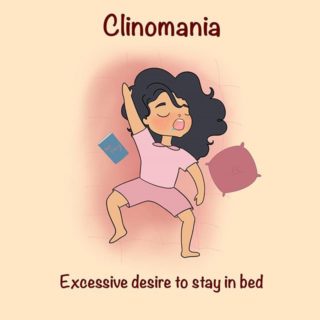On a Sunday, we feel lazy. We want to stay in bed for that additional half an hour. During winter, we feel like remaining in bed with a blanked wrapped around. While these are normal feelings to have, there are some who suffer from something called clinomania. To put it simply, clinomania is the strong desire for a person to remain in bed. The word stems from Latin word ‘clin’ which means bed and ‘mania’ which loosely translates to madness.
As is evident from the meaning of the word clinomania, people who suffer from this problem have this strong and unnatural urge to remain cooped up in bed, even to the point of obsession or madness. They feel no desire to get out of bed and do something productive. They feel lazy and have no focus. They also feel that whatever they do will not amount to much and that is why there is no point in doing anything! Clinomania is often a byproduct of depression.
People who suffer from depression lose all hope about life and what it has to offer. As a result, they laze around in bed and create imaginary cobwebs in the mind. Anyone trying to pull them out of this stupor is usually faced with a lot of resistance which may sometimes turn violent. It is only a trained psychologist who can handle the problem of clinomania and get a person to shirk off this dangerous habit. Like other mental problems, clinomania can give way to deep rooted depression.
Early stages of clinomania don’t really need medication. It is usually a case of motivating a person enough to pull themselves out of bed and do something useful with their life. Individual sessions and group therapy can come in handy. When such people find a focus back in their life, like a job or a hobby, they are most welcome to the idea of leaving their beds. The psychologist’s job is to find out what might be of interest to them and encourage them in that pursuit.
There is a strong link between clinomania and depression. People who suffer from depression usually have tendencies of clinomania but the other way is not always true. A professional psychologist can help you or anyone you know who has this problem.

